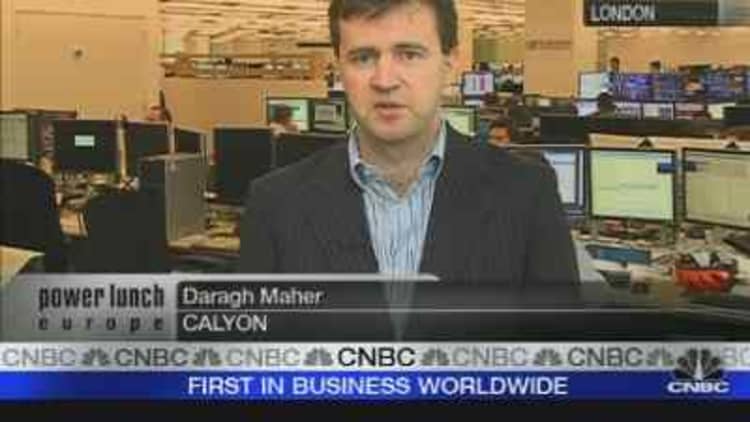Germany posted the strongest economic growth since 1996 in the first quarter of 2008, leading the euro zone's GDP to rebound more than expected in the first quarter.
The gross domestic product (GDP) in Europe's biggest economy expanded by 1.5 percent quarter-on-quarter in the first three months of 2008, the strongest growth since 1996, the Federal Statistics Office said on Thursday.
The increase, which was adjusted for seasonal, calendar and price effects, followed expansion of 0.3 percent in the final quarter of 2007, and far outstripped analysts' expectations.
The mid-range forecast of 50 economists polled by Reuters last week was for growth of 0.7 percent.
Individually, they had predicted expansion of between 0.2 and 0.9 percent.
"Viewed over the whole quarter, the economic upswing of the previous year has continued unbroken; the German economy has proven highly robust despite increasing headwinds at the start of 2008," the Office said in a statement.
An Office spokeswoman said growth in the quarter was the strongest since the second quarter of 1996.
On the year, German GDP increased by 1.8 percent in the January to March period after annual growth of 1.6 percent in the fourth quarter of 2007, the figures showed.
Adjusted for working days, Germany's economy grew by 2.6 percent on the year.

The Office is due to publish a breakdown of the first-quarter GDP figures on May 27.
Euro Zone First-Quarter GDP Rebounds More than Expected
Euro zone economic growth rebounded more strongly than expected in the first quarter against the previous three months, mainly thanks to a strong performance by Germany, data showed.
Gross domestic product in the 15 countries using the euro rose 0.7 percent in the January-March period against the previous quarter for a 2.2 percent year-on-year rise, the European Union statistics office estimated on Thursday.
That was a much stronger-than-expected rebound from 0.4 percent quarterly growth in the last three months of 2007.
Economists and the European Commission had forecast quarterly growth of 0.5 percent.
In annual terms, economists had expected a 1.9 percent rise, against 2.2 percent in the last three months of 2007.
But the Commission has said growth is likely to slow in the second quarter under the weight of tighter credit conditions, slowing world growth, a stronger euro and rising commodity prices and be 1.7 percent for 2008 against 2.6 in 2007.
France, the euro zone's second-biggest economy, was also above consensus with 0.6 percent growth.
Separately, Eurostat confirmed its earlier estimate that euro zone inflation in April slowed to 3.3 percent year-on-year from an all-time peak of 3.6 percent in March.
Monthly inflation in April was 0.3 percent, fuelled mainly by a 1 percent increase in energy prices and a 0.5 percent rise in the cost of food, alcohol and tobacco.
Year-on-year, energy costs surged 10.8 percent in April and food, alcohol and tobacco jumped 5.4 percent.
A measure the European Central Bank calls core inflation, which does not include unprocessed food and energy, came to 0.2 percent month-on-month and 2.4 percent year-on-year.
The ECB wants annual inflation to be just below 2 percent, but has kept interest rates unchanged at 4.0 percent since mid-2007 because it expects the inflation surge to be temporary and price growth to slow along with the economy.

